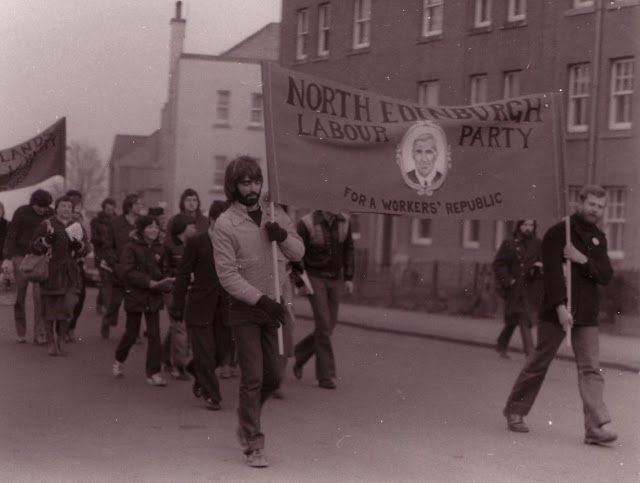I have a soft spot for
The Age of Insecurity, a 1998 book by Larry Elliott and Dan Atkinson.
In part this is because, having bought a copy and sat down to read it, I found that I was quoted in it.
Since you ask, that quote runs:
In a letter to the Guardian on 15 September 1997, Jonathan Calder wrote: "Labour is effectively recasting unemployment as a form of individual delinquency."
So I can claim to have identified early on a trend that has continued right up to Iain Duncan Smith and his Work Capability Assessments.
The other reason I like the books is that it central analysis still seems spot on.
Elliott and Atkinson argue that the supposed rise of freedom in the two decades before they wrote was only for freedom of a particular sort.
Money had certainly been set free by measures such as the abolition of exchange controls, but people actually enjoyed less freedom. That freedom had been eroded both by the Thatcherite war on unions and job security and by New Labour's enthusiasm for policing private life.
As they wrote:
The citizen now fears not only the P45 and the UB40, but the knock on the door from the child welfare inspector.
Again, that analysis seems prophetic today in a world where money travels the globe in microseconds and refugees die in the attempt to cross national borders.
I thought of The Age of Insecurity today when I read a post on the always excellent Stumbling and Mumbling blog:
Workplace Coercion.
In it Chris Dillow ("Rutland's leading economic thinker"), who writes the blog, quotes the Guardian report of working conditions at Sports Direct:
All warehouse workers are kept onsite at the end of each shift in order to undergo a compulsory search by Sports Direct security staff, with the experience of the Guardian reporters suggesting this typically adds another hour and 15 minutes to the working week – which is unpaid.
He then asks why right-wing lovers of freedom are never heard criticising such arrangements.
Is it that they believe the labour markets function as the economic textbooks say they should? Is it that they fear any intervention in those markets will make things worse?
Or is it - and my money's on this one - that they care only about freedom for bosses, and not freedom for all.
The way that New Labour has contribute to the insecurity of the average Briton was also discussed in a Guardian article today by
Tom Clark.
Clark argues that successful prime ministers - and he gives Attlee and Thatcher as examples - first argue against the conventional wisdom, then establish a new consensus and finally frame laws and institutions that cement it for years after they have stood down.
He goes on:
Now think of the apologetic nervousness with which New Labour did great things. Within a few years of passing the Human Rights Act, Jack Straw found it expedient to begin rubbishing it – so today Conservatives can now sound respectable in proposing to rip it up.
Gordon Brown goaded the Tories into voting for the abolition of child poverty, but because nobody outside of Westminster was engaged in that argument, the Tories can today move the goalposts by redefining a poverty measure just before the poverty rate surges.
New Labour’s tax credits dressed redistribution up as a tax cut. At the same time, the party indulged suspicions about welfare cheats with endless headlines about dedicated hotlines to dob in neighbours for swinging the lead, or lie detectors in jobcentres.
He concludes:
as Labour in parliament looks on in bewilderment at a voluntary party that appears to have lost all appetite for office, it should give some thought to the doctrine of power at any price, and the transient nature of its legacy.
That is unfair to Labour activists, most of who very much want power even if they have opted for a wrongheaded strategy of winning it.
But Clark is right that New Labour ducked arguments and tried to do good while sounding as though it was being nasty to people.
I think New Labour saw this as a way of keeping the middle classes happy, but its effect has been to bolster just those strands in working-class and lower middle-class thinking that make people unwilling to vote Labour.
But then me and Larry and Dan could have told you that almost 20 years ago.


















